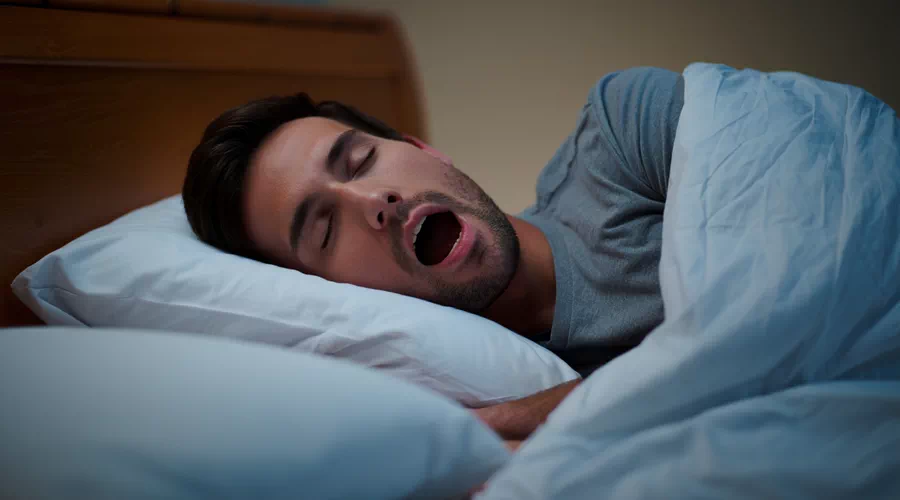Sleep apnea is a dangerous disorder characterized by repeated pauses in breathing during sleep. Each pause can last from a few seconds to several minutes, and there can be dozens or even hundreds of them during the night. This is not just an inconvenience that interferes with proper rest. Sleep apnea is a serious condition that can lead to many life-threatening complications over time. Let’s take a closer look at the danger of sleep apnea.
Dangerous Physiological Effects of Sleep Apnea

The main danger of sleep apnea is that during pauses in breathing, the level of oxygen in the blood drops sharply, while the level of carbon dioxide, on the contrary, increases. The body experiences oxygen starvation (hypoxia), which forces the heart to work harder to compensate for the lack of oxygen.
This leads to:
- Increased risk of cardiovascular disease:
Hypoxia and cardiac overstrain can cause hypertension (high blood pressure), arrhythmia (irregular heart rhythms), coronary heart disease (CHD), stroke, and even sudden cardiac death. Constant hypoxia damages the walls of blood vessels, contributing to the development of atherosclerosis – the accumulation of cholesterol plaques that narrow the lumen of the arteries. - Impaired brain function:
Lack of oxygen has a negative effect on the brain. This can manifest itself in the form of daytime sleepiness, decreased concentration, memory impairment, slow reaction times, and difficulty making decisions. In severe cases, cognitive impairment, including dementia, is possible. In addition, constant intermittent breathing disrupts sleep phases, depriving the brain of the opportunity to fully recover. - Increased risk of type 2 diabetes:
Sleep apnea is closely associated with metabolic disorders. Chronic hypoxia contributes to the development of insulin resistance, a condition in which the body’s cells stop responding adequately to insulin, which leads to increased blood sugar levels and the development of type 2 diabetes. - Increased risk of obesity:
Research shows that sleep apnea is common in people who are overweight or obese. On the one hand, excess fat tissue in the neck can narrow the airways, worsening apnea. On the other hand, sleep disturbance caused by apnea can affect hormonal balance, promoting fat accumulation. - Impaired liver function:
Constant hypoxia can also negatively affect liver function, increasing the risk of developing fatty hepatosis and other liver diseases.
Dangerous Psychological Effects of Sleep Apnea

Sleep apnea not only affects physical health, but also has a negative impact on mental health. Chronic fatigue, drowsiness and sleep disturbances lead to:
- Increased risk of depression and anxiety disorders:
Lack of sleep and constant feeling of malaise can cause irritability, depression, anxiety and other mental disorders. In turn, psychological problems can worsen sleep apnea, creating a vicious circle. - Deterioration in quality of life:
Sleep apnea significantly worsens the quality of life, affecting work, relationships with loved ones and overall well-being. People suffering from this disorder often experience drowsiness during the day, which can lead to mistakes at work, traffic accidents and other unpleasant consequences.
Diagnosis and treatment
It is important to understand that sleep apnea is a treatable disease. Polysomnography is usually used for diagnosis – a sleep study that records breathing pauses, blood oxygen levels and other indicators.
Treatment may include lifestyle changes (weight loss, quitting smoking and drinking alcohol), the use of special devices to support breathing during sleep (CPAP therapy) and, in some cases, surgery.
Want to schedule an appointment?
Mo-Fr 8:00 am – 5:00 pm
Sa 9:30 am – 3:00 pm

